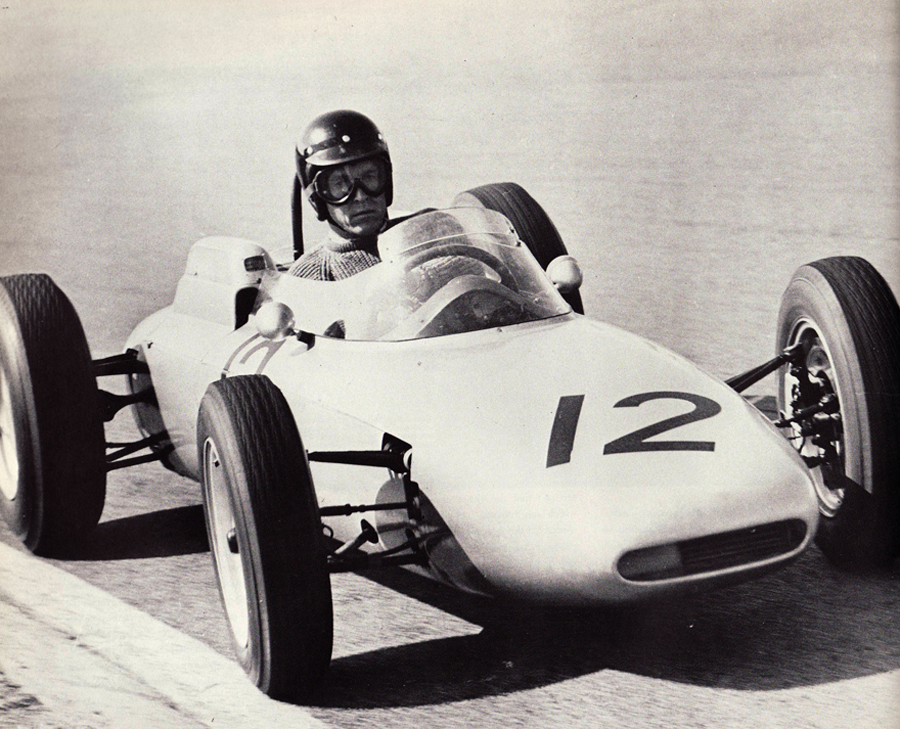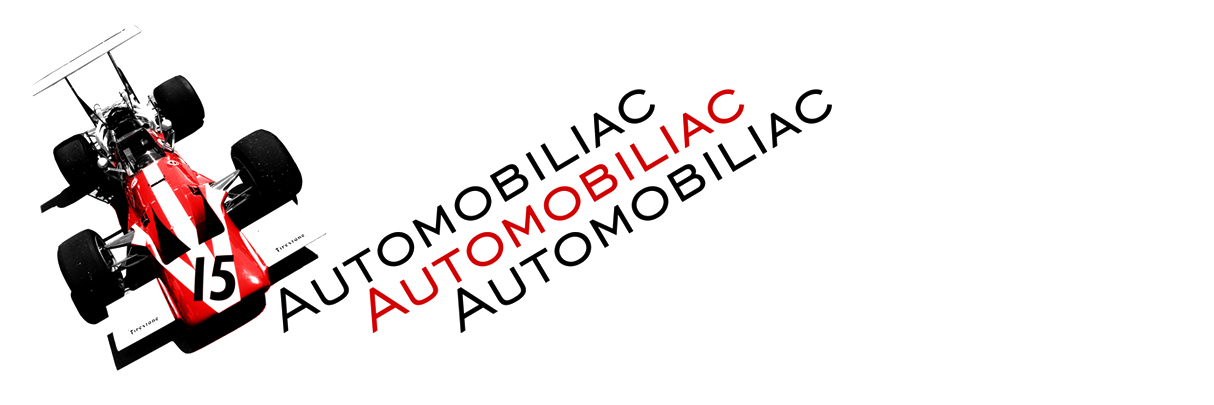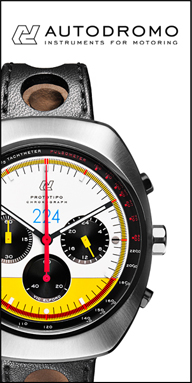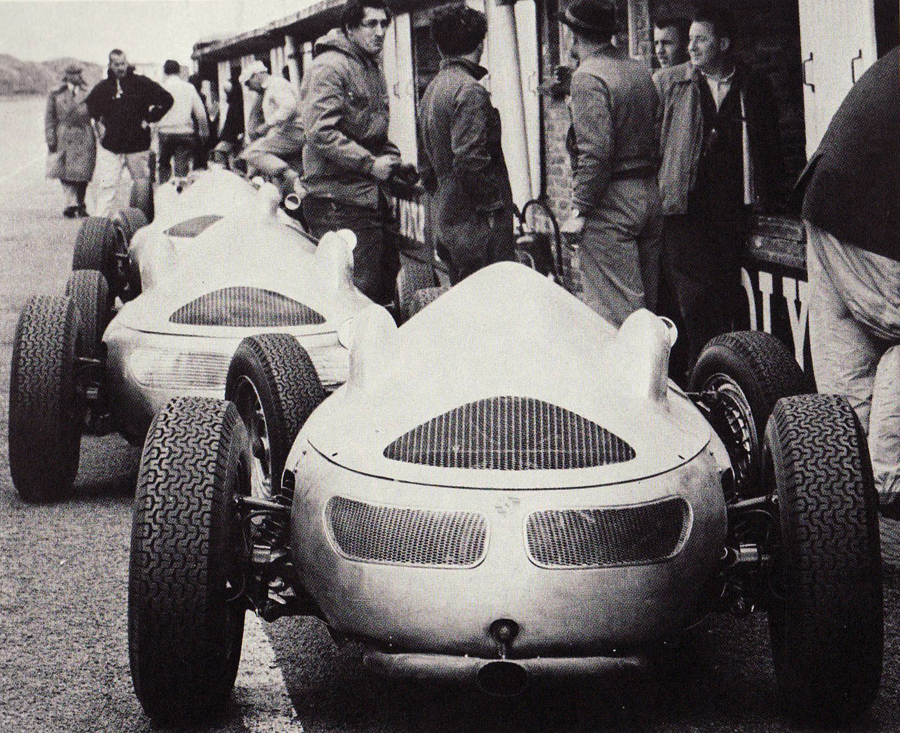Porsche in Formula One - What could have been?
 Sunday, November 7, 2010 at 12:33PM
Sunday, November 7, 2010 at 12:33PM  Throughout its history, Porsche has flirted several times with single seater formula cars, but never more seriously than in the early 1960's when Dan Gurney, Jo Bonnier, and Wolfgang von Tripps campaigned their Formula One cars. The best result acheived was Gurney's 1962 French GP victory at Rouen. Gurney is shown above, at rapt attention behind the wheel of the 804.
Throughout its history, Porsche has flirted several times with single seater formula cars, but never more seriously than in the early 1960's when Dan Gurney, Jo Bonnier, and Wolfgang von Tripps campaigned their Formula One cars. The best result acheived was Gurney's 1962 French GP victory at Rouen. Gurney is shown above, at rapt attention behind the wheel of the 804.
At the end of the 1962 season, Porsche withdrew from F1 citing costs, and there is also a belief that they felt F1 was too far divorced from their road cars. Perhaps they just didn't like to lose, and they had never been in a truly competitive position with their air-coooled flat 8 engine, in a time where V-configured engines were far more par for the course. All this makes one wonder what might have been had Porsche decided to double down on F1, and put the sort of technical and financial resources behind it that saw them develop their world-beating Sports Car prototypes as the decade progressed. It is also interesting to consider that Ferrari, a smaller volume carmaker (also probably more mismanaged at the time!), was able to carry on simultaneous F1 and Sports Car programs in the 1960s, yet Porsche was not seemingly willing to shoulder the expense. We'll never know what might have been had Porsche gone head to head with Ferrari and Lotus in the mid 60s. They coulda been a contender. For additional historic photos, click HERE.
All photos credit: Julius Weitmann
 804,
804,  Dan Gurney,
Dan Gurney,  F1,
F1,  Formula One,
Formula One,  Jo Bonnier,
Jo Bonnier,  Julius Weitmann,
Julius Weitmann,  Wolfgang von Tripps,
Wolfgang von Tripps,  porsche in
porsche in  History
History 


Reader Comments (6)
The Porsche 804 was a good looking car. It would have been really hard to beat the British teams. That is still true today. Ask Toyota :)
Tom Tanner/Scale Designs/Ferrari Expo 2011-Chicago April 2011
Keep in mind Porsche had a bit more Formula One involvement in the early to mid 1980's as an engine supplier to McLaren with the TAG-Porsche with turbocharged V6's. Those were so good that Porsche managed to power McLaren to 3 driver championships and 2 constructor's.
Also, as you mentioned, everyone knew that in years when the Ferrari F1 team was doing well, their sports cars did poorly and vice versa. Apparently, resources were spread thin among two big racing programs!
Thanks for the info Murph! Yes, Porsche definitely supplied good engines to McLaren, and also had their abortive effort at winning Indy. But I would still put those down as more minor footnotes compared to the success of, say, Honda in F1, or the dominance Porsche showed at Le Mans for essentially 20 years, from the 917 thru the 962.
I was at the 12 Hours of Sebring shakedown earlier this year and found myself walking just outside the pit wall after all of the cars had come in after the second day. I looked back at the paddock facade where a sign hung with the manufacturer that won for each year of the race. I couldn't believe how many signs were marked "Porsche."
That said, with the talk of Porsche coming back to F1 in a post-VW merger - I'd be very interested to see how they line up against Ferrari or McLaren. With F1 moving to turbocharged, low cylinder-count engines I think Porsche could have a distinct advantage at creating some incredibly durable power plants that could be tied into production vehicles.
Porsche has won alot of sportscar races by entering large numbers of cars. Most of those Sebring and Lemans races you mention had over 75% of the class filled with Porsche or Porsche engined cars. A good example of how the Porsche's were alot of times not the fastest was 1984-85 when Lancia was racing the LC2 cars. Lancia only entered a few cars, and Porsche entered a Panzer division of 956's. The Lancia's one year led until around the 21st hour when it had trouble. If Lancia had entered 20 cars they would have won the race.
When Illmor built Chevrolet Indy or Mercedes F1 engines did they get the credit for the engines? The answer is no.
I like Porsche's too, but a Porsche is not a Ferrari. Until around 1970 Porsche was closer to Alfa Romeo than Ferrari in both performance and production rate.
Great points, Tom!